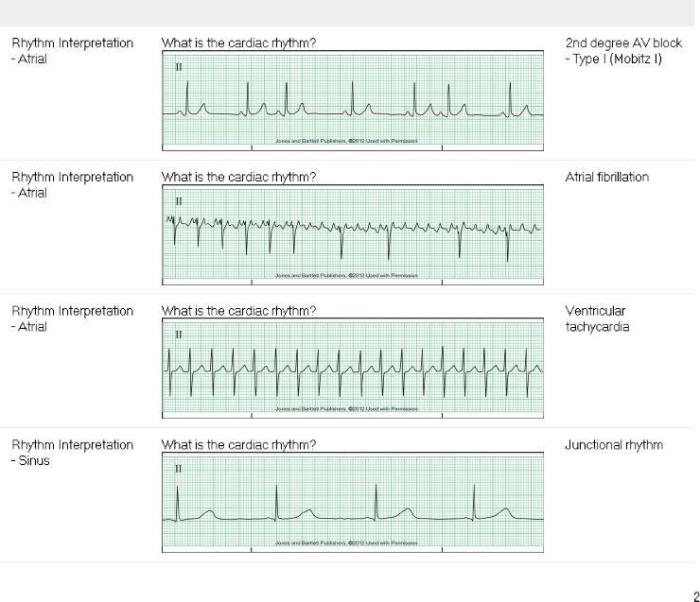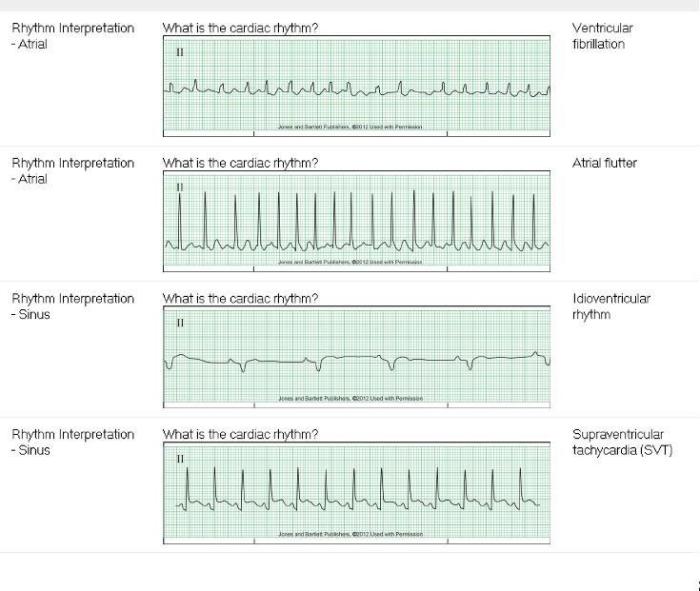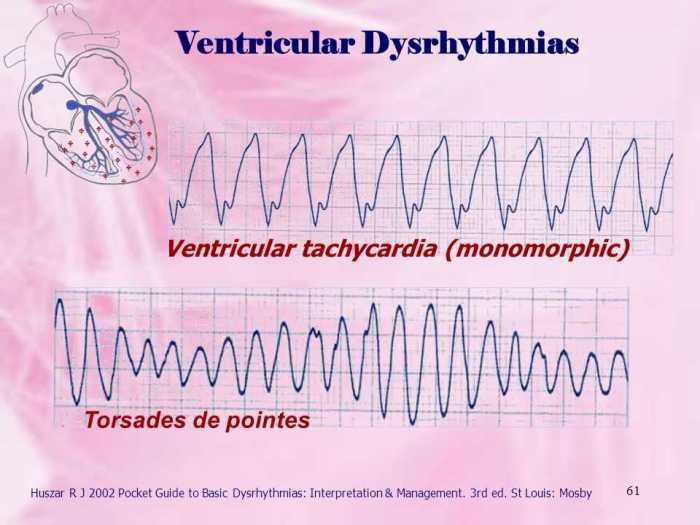Prophecy dysrhythmia basic a test answers provides a comprehensive overview of this condition, its causes, diagnosis, and treatment options. This guide is designed to empower individuals with the knowledge they need to understand and manage their prophecy dysrhythmia.
Prophecy dysrhythmia is a heart rhythm disorder that can cause the heart to beat too fast, too slow, or irregularly. It can be a serious condition, but it can be managed with proper treatment. This guide will provide you with the information you need to understand prophecy dysrhythmia and make informed decisions about your care.
Definition and Types of Prophecy Dysrhythmia

Prophecy dysrhythmia is a rare type of cardiac arrhythmia characterized by a premature ventricular complex (PVC) that occurs in close proximity to the QRS complex of a preceding beat. This results in a distinctive pattern on an electrocardiogram (ECG), resembling a “prophetic” warning of an impending ventricular arrhythmia.
Types of Prophecy Dysrhythmia
- Type 1:PVC occurs within 80 milliseconds of the preceding QRS complex, typically seen in healthy individuals and not associated with an increased risk of ventricular arrhythmias.
- Type 2:PVC occurs 80-120 milliseconds after the preceding QRS complex, commonly observed in patients with structural heart disease and an increased risk of ventricular arrhythmias.
- Type 3:PVC occurs more than 120 milliseconds after the preceding QRS complex, often associated with severe structural heart disease and a high risk of ventricular arrhythmias.
Causes and Risk Factors: Prophecy Dysrhythmia Basic A Test Answers

The exact cause of prophecy dysrhythmia is unknown, but several factors are thought to contribute to its development:
Causes, Prophecy dysrhythmia basic a test answers
- Myocardial ischemia
- Structural heart disease
- Electrolyte imbalances
- Genetic factors
Risk Factors
- Age over 65
- History of heart disease
- Diabetes
- Obesity
- Smoking
Diagnosis and Testing
Prophecy dysrhythmia is diagnosed based on an electrocardiogram (ECG), which records the electrical activity of the heart. The ECG will show a characteristic pattern of a PVC occurring close to the QRS complex of a preceding beat.
Other tests that may be used to diagnose prophecy dysrhythmia include:
- Echocardiogram
- Electrophysiological study
Treatment Options

Treatment for prophecy dysrhythmia depends on the severity of the arrhythmia and the underlying cause. Treatment options may include:
Medications
- Antiarrhythmic drugs
- Beta-blockers
- Calcium channel blockers
Lifestyle Modifications
- Quitting smoking
- Losing weight
- Exercising regularly
- Reducing stress
Other Therapies
- Catheter ablation
- Implantable cardioverter-defibrillator (ICD)
Prognosis and Complications
The prognosis for patients with prophecy dysrhythmia depends on the severity of the arrhythmia and the underlying cause. In general, patients with type 1 prophecy dysrhythmia have a good prognosis, while patients with type 2 and 3 prophecy dysrhythmia have a higher risk of developing ventricular arrhythmias and sudden cardiac death.
Complications
- Ventricular tachycardia
- Ventricular fibrillation
- Sudden cardiac death
Frequently Asked Questions
What is prophecy dysrhythmia?
Prophecy dysrhythmia is a heart rhythm disorder that can cause the heart to beat too fast, too slow, or irregularly.
What are the symptoms of prophecy dysrhythmia?
The symptoms of prophecy dysrhythmia can vary depending on the type of arrhythmia. Some common symptoms include chest pain, shortness of breath, dizziness, and fainting.
How is prophecy dysrhythmia diagnosed?
Prophecy dysrhythmia is diagnosed with an electrocardiogram (ECG). An ECG is a test that records the electrical activity of the heart.
How is prophecy dysrhythmia treated?
The treatment for prophecy dysrhythmia depends on the type of arrhythmia. Some common treatments include medications, lifestyle changes, and surgery.